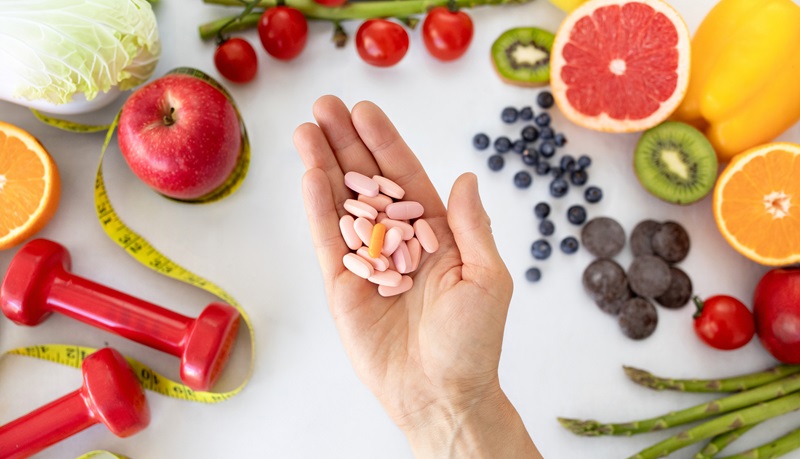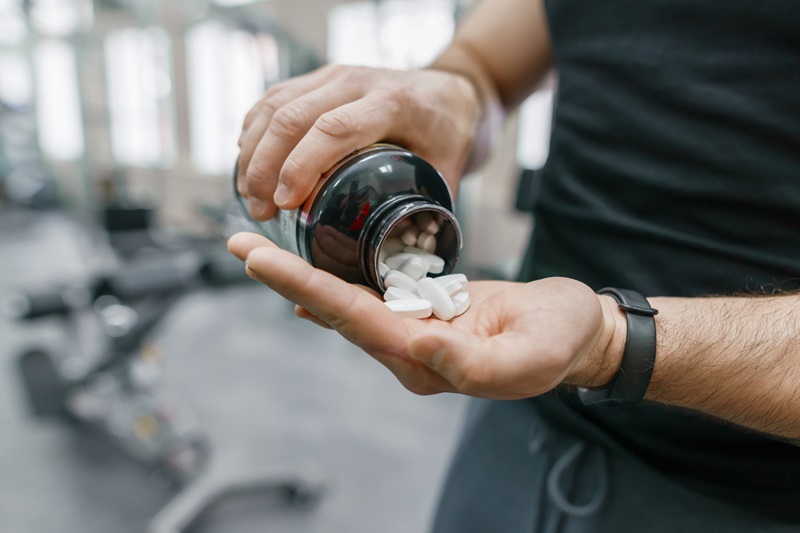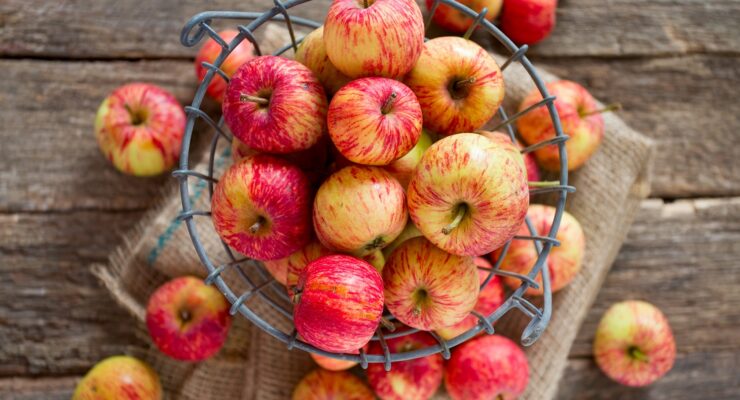Your Guide to Weight Loss Supplements: Helpful or Harmful?
Article posted in: Diet & Nutrition Experts’ Corner
Melt fat, boost metabolism – these are common claims attached to popular weight loss supplements. When you’re on a mission to shed pounds, they are tempting. But can these claims be true, and are these products even safe? Here’s what you need to know.
What Are Weight Loss Supplements?

Weight loss supplements typically contain a combination of botanicals, fiber, herbs and minerals that manufacturers claim enhance weight loss by affecting the way your body absorbs and processes the food you eat.
These supplements come in various forms: pills, capsules, liquids and powders, often containing an array of different ingredients in each dose.
There’s just one problem – these products are rarely tested for their effectiveness and safety. Unlike over-the-counter or prescription drugs, the Food and Drug Administration (FDA) doesn’t require supplement manufacturers to submit studies proving the safety or effectiveness of their products before they hit store shelves.
That said, it’s not a complete wild west out there. The FDA and the Federal Trade Commission (FTC) can yank products off the shelves if they are found to be dangerous or make false and misleading claims.
How Do Weight Loss Supplements Work?

The claims of weight loss supplements are based on the expected actions of the ingredients used in each product. These ingredients usually fall into one of the following categories:
- Metabolism Boosters: Caffeine, capsaicin, curcumin, yerba mate and guarana are often touted as metabolism-boosting heroes. But the truth is their effects are minimal. For instance, one study showed that a 100 mg dose of caffeine boosted metabolism by about three to four percent, but this effect fizzled out after about two hours. To put that in perspective, we’re talking about burning an extra 50 calories or so daily, hardly enough to tip the scales.
- Fat Burners and Blockers: Catechins from green tea extract and chitosan from shellfish may have some impact on fat breakdown and absorption, but don’t expect them to be your magic ticket to a significantly slimmer you.
- Herbal Laxatives and Diuretics: Ingredients like rhubarb, cascara, senna and aloe might cause water weight loss that shows up on the scale, but they won’t lead to healthy changes in your body composition.
- Appetite Suppressors and Digestive Aids: Fibers and vegetable extracts may lend a hand in keeping you feeling full and easing some digestive discomforts.
The Burning Question: Do Weight Loss Supplements Work?

There is evidence that some of the individual ingredients mentioned above may positively impact weight management; however, much more research is needed to say for sure.
Furthermore, most supplements combine multiple ingredients, and no studies have been completed on how these ingredients interact and work together to produce results.
Occasionally, you might come across “clinically tested” claims on specific products. Some manufacturers have conducted small studies on their products, but none of these studies include the large, long-term research required to prove efficacy.
Lastly, an important thing to remember is that none of these products will have any impact without a healthy diet and regular exercise. Despite the temptation of some of these product’s claims, there is simply no magic pill for weight loss.
Navigating Side Effects and Safety

Ingredients included in many weight loss supplements can produce a wide range of side effects – some minor, some more serious, depending on your current health condition.
Moreover, these ingredients can interact with each other and certain medications. Most products have not undergone rigorous, long-term safety studies that evaluate the specific dosage and combinations used.
For these reasons, it’s imperative to always consult with your healthcare provider before considering taking any of these products.
Embracing Healthy Alternatives to Weight Loss Supplements

The undeniable truth is that the only proven way to achieve and maintain a healthy weight is by staying physically active and maintaining a balanced diet filled with fruits, veggies, fiber, whole grains and lean proteins.
Still, there are some effective ways to boost your weight loss success, including:
- Staying Hydrated: Water helps keep you feeling full and fuels a healthy metabolism.
- Getting Enough Sleep: Healthy sleep habits keep appetite and stress hormones in check.
- Manage Stress: Chronic stress can be a roadblock on your path to weight loss. Find healthy ways to manage it.
- Strength Train: Building muscle not only boosts your metabolism but also enhances your physique.
- Get Sufficient Protein: Protein helps keep you full and supports calorie-burning muscle growth. Nutrisystem has plenty of delicious, high-protein meals that can help you meet your daily protein needs. Protein powders, such as Nutrisystem Shakes, can also help. Check out our guide to high-protein meal prep to help you save time and stay on track!
Key Takeaway
When it comes to weight loss supplements, the promises can be alluring, but the results often fall short. While some ingredients may offer minor benefits, there’s no magical shortcut to shedding those extra pounds. Instead, embrace a holistic approach to health and weight management, and consult with your healthcare provider before venturing into the world of supplements.
References
- Dulloo AG, Geissler CA, Horton T, Collins A, Miller DS. Normal caffeine consumption: influence on thermogenesis and daily energy expenditure in lean and postobese human volunteers. Am J Clin Nutr. 1989;49(1):44-50. doi:10.1093/ajcn/49.1.44







